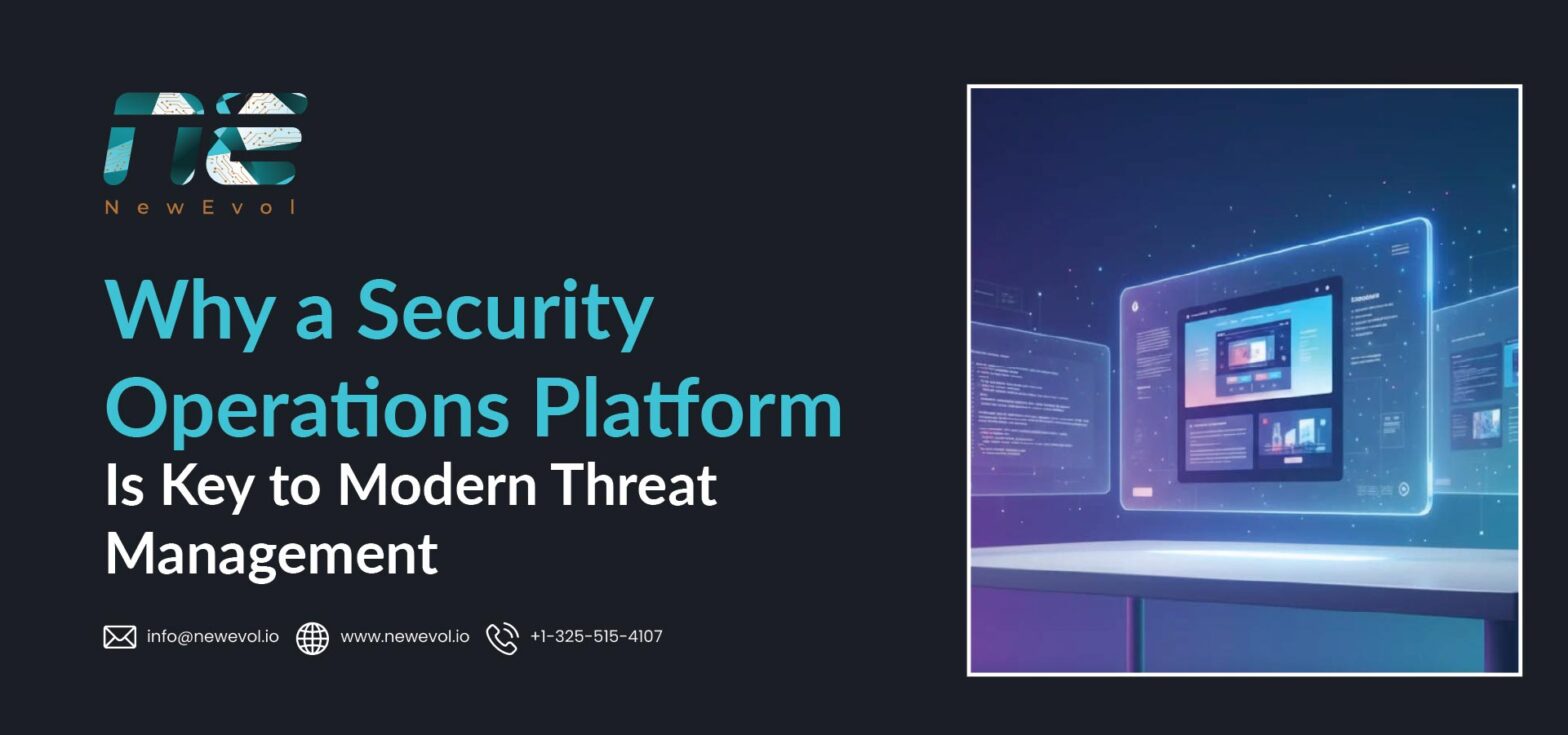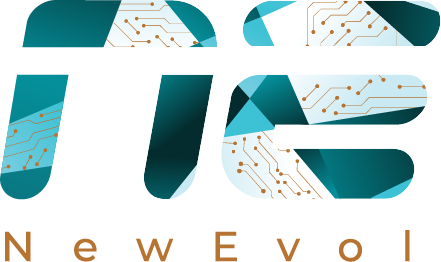Why a Security Operations Platform Is Indispensable for Modern Threat Management

As technological innovation accelerates across the UAE, enterprises are encountering cyber risks of unprecedented scale and complexity. Smart cities, cloud adoption, IoT expansion, and remote work ecosystems have created intricate digital landscapes, where traditional security measures fall short. Cyber threats are no longer isolated incidents—they are sophisticated, multi-vector campaigns designed to exploit the interconnectedness of modern infrastructure, making advanced cybersecurity services in UAE essential for protecting critical assets and ensuring operational resilience.
The challenge for organizations is clear: how to maintain resilience and operational continuity in a landscape where the speed, scale, and sophistication of attacks outpace human response capabilities. Herein lies the transformative value of a Security Operations Platform (SOP), a unified, intelligent, and adaptive system that orchestrates threat detection, response, and analytics across the enterprise.
The Intellectual Rationale for Security Operations Platforms
A Security Operations Platform is not merely a tool; it represents a strategic framework for enterprise cybersecurity, integrating data aggregation, real-time analytics, automation, and threat intelligence into a cohesive operational ecosystem. Conceptually, it aligns with three foundational principles of modern security management:
- Holistic Situational Awareness – No system operates in isolation. A SOP synthesizes data across networks, endpoints, cloud services, and IoT devices, providing a panoramic view of enterprise risk.
- Automation as Cognitive Extension – Sophisticated attacks often evolve faster than human cognition. By codifying expert knowledge into automated playbooks, SOPs extend the cognitive capacity of security teams, enabling rapid, precise responses.
- Evidence-Based Decision Making – Modern threat management requires actionable intelligence derived from continuous, multi-source data analysis, enhancing strategic, tactical, and operational decisions.
In essence, a Security Operations Platform transforms cybersecurity from reactive patchwork to proactive orchestration, a critical shift for enterprises operating in high-risk, highly regulated environments such as the UAE.
Navigating the Evolving Threat Landscape
Cyber threats in the UAE have grown both in scale and sophistication. Consider the following dynamics:
- Converged Attack Surfaces: The interplay of cloud infrastructure, hybrid networks, IoT devices, and remote endpoints creates complex attack surfaces, where lateral movement by threat actors can occur undetected.
- Advanced Persistent Threats (APTs): Nation-state and highly organized cybercrime groups employ multi-stage, stealthy attacks designed to exfiltrate data over extended periods.
- Regulatory Complexity: Compliance with frameworks such as NESA, UAE Data Protection Law, and ISO/IEC 27001 demands granular visibility and demonstrable controls.
- Rapid Technological Change: Enterprises adopting AI, automation, and connected infrastructure inadvertently expand potential vulnerabilities.
Traditional security solutions, siloed and tool-specific, cannot cope with this complexity. SOPs, by contrast, integrate, automate, and contextualize security operations, creating a responsive architecture capable of evolving alongside threats.
Core Capabilities of a Modern Security Operations Platform
The UAE Managed Security Services Market was valued at approximately USD 512.55 million in 2024 and is projected to reach USD 1.11 billion by 2030, growing at a CAGR of 13.64% between 2025-2030. Growth is driven by increasing cyber threats, cloud adoption, and demand for centralized threat detection and response.
Here are the core capabilities of a Modern Security Operations Platform.
1. Centralized Intelligence and Correlation
At the heart of an SOP lies its ability to aggregate heterogeneous data streams—logs from endpoints, network telemetry, application activity, and cloud events—into a unified framework. Through correlation and pattern analysis, SOPs detect anomalies that would otherwise remain invisible, allowing for early identification of emerging threats.
2. Predictive Threat Analytics
By incorporating AI and machine learning, SOPs transcend reactive monitoring. They analyze historical patterns, behavioral baselines, and global threat intelligence to predict likely attack vectors. In a UAE enterprise context, this can mean preemptively identifying suspicious transactions in banking, anomalous access to critical infrastructure, or potential breaches in healthcare systems.
3. Automated Orchestration and Response
The principle of orchestration enables SOPs to automate repetitive and time-sensitive responses:
- Quarantining compromised endpoints
- Blocking malicious network activity
- Triggering incident escalation protocols
- Generating compliance reports
This not only accelerates response times but also enforces consistency and accuracy across security operations, reducing human error in high-stakes environments.
4. Continuous Threat Intelligence Integration
Modern SOPs assimilate threat intelligence feeds—global and regional—offering contextual insights into emerging attack techniques. By mapping these insights to internal assets and processes, organizations can prioritize defensive measures based on real risk rather than hypothetical scenarios.
5. Regulatory Alignment and Audit Readiness
In the UAE, regulatory compliance is both a legal obligation and a market differentiator. SOPs provide transparent audit trails, automated reporting, and governance dashboards, enabling organizations to demonstrate adherence to NESA guidelines and industry-specific security standards.
6. Strategic Resource Optimization
SOPs allow organizations to do more with existing personnel and technology. By automating low-value tasks and prioritizing high-risk alerts, security teams can focus on strategic initiatives, threat hunting, and proactive defense measures, enhancing overall cyber resilience.
The Strategic Value of SOPs
Beyond operational efficiency, SOPs provide strategic advantages:
- Resilience: Minimized downtime and rapid containment of security incidents protect revenue, reputation, and stakeholder trust.
- Predictive Capability: Anticipating threats reduces the probability of successful attacks and informs investment decisions in cyber infrastructure.
- Business Continuity: Ensures uninterrupted operations even during active threat events.
- Decision Support: Real-time insights support executive decision-making and risk management strategies.
In essence, a SOP aligns cybersecurity with enterprise governance, risk management, and operational strategy, transforming security from a cost center into a competitive enabler.
Implementation Considerations for UAE Enterprises
The UAE Security Market generated revenue of USD 1.81 billion in 2024 and is forecasted to grow to USD 3.13 billion by 2030, at a CAGR of 9.4%. The services segment, including security operations and managed detection and response, registers the fastest growth.
- Assess Organizational Readiness: Evaluate existing tools, workflows, and staff capabilities to identify gaps and integration points.
- Define High-Value Use Cases: Prioritize areas where automation and orchestration will yield the most significant risk reduction.
- Invest in Training and Change Management: Ensure teams are capable of interpreting SOP insights and maintaining automation workflows.
- Integrate Threat Intelligence Strategically: Leverage regional insights to complement global intelligence, aligning defenses with local threat dynamics.
- Continuous Evaluation and Optimization: Regularly refine playbooks, alert thresholds, and response protocols to adapt to evolving threats.
NewEvol’s Security Operations Platform
NewEvol provides UAE enterprises with a comprehensive, AI-driven Security Operations Platform that combines centralized monitoring, predictive analytics, automation, and regulatory compliance support. Key offerings include:
- Real-Time Threat Detection: AI algorithms identify anomalies and potential attacks across all digital assets.
- Automated Incident Response: Intelligent playbooks reduce response times and ensure consistent remediation.
- Integration with Existing Infrastructure: Connects seamlessly with SIEMs, firewalls, endpoints, and threat intelligence sources.
- Regulatory Compliance Support: Facilitates NESA, UAE Data Protection Law, and industry-specific reporting requirements.
- Continuous Learning: Machine learning models refine detection and response based on historical data and evolving threat patterns.
With NewEvol, UAE enterprises can achieve a proactive, adaptive, and intelligent cybersecurity posture, safeguarding critical assets while enabling secure digital transformation.
End Note
Modern cyber threats are multidimensional, sophisticated, and relentless. For UAE enterprises, navigating this landscape requires more than point solutions or manual monitoring—it demands an integrated Security Operations Platform capable of unifying intelligence, automating response, and providing actionable insights.
By adopting a SOP, organizations can move from reactive defense to proactive, predictive security, optimize operational resources, maintain regulatory compliance, and enhance overall resilience. NewEvol’s platform delivers this intellectual and operational advantage, empowering UAE enterprises to secure their digital future with confidence and strategic foresight.
FAQs
1. What is a Security Operations Platform (SOP)?
A SOP is an integrated cybersecurity solution that centralizes threat detection, automates incident response, and provides actionable intelligence for enterprises.
2. Why is a SOP essential for UAE enterprises?
It enables proactive threat management, regulatory compliance, operational efficiency, and predictive security in complex digital environments.
3. Can a SOP integrate with existing security infrastructure?
Yes, modern SOPs orchestrate SIEMs, firewalls, endpoints, and threat intelligence tools for cohesive operations.
4. How does a SOP support regulatory compliance in the UAE?
By providing automated reporting, audit trails, and standardized workflows aligned with NESA and UAE Data Protection Law.
5. How does NewEvol’s SOP enhance cybersecurity operations?
It delivers AI-driven threat detection, automated response, continuous learning, and regulatory compliance, ensuring enterprises operate proactively and securely.

